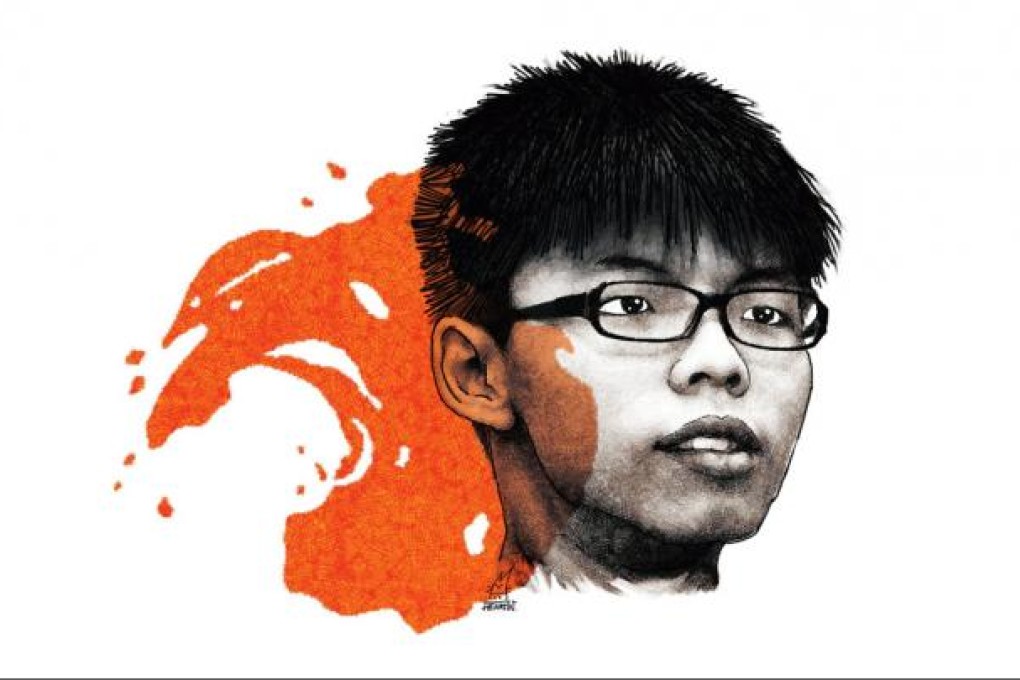Scholarism's Joshua Wong embodies anti-national education body's energy
15-year-old Joshua Wong Chi-fung, co-founder of the group Scholarism, has come to symbolise the anti-national education movement's energy

You know Joshua Wong Chi-fung is a busy young man the moment he meets you. With the government headquarters in Admiralty alive with protest action, he walks fast, talks almost too quickly to catch his words, and hardly has time to chat at all.
The driven 15-year-old can claim credit for an anti-national-education message that is now all over the city. From a YouTube video showing his eloquent engagement with reporters, to mass rallies organised by a group he co-founded, he has grown in stature beyond his years, becoming an icon in the snowballing movement against the classes.
Joshua, a Form Five pupil at United Christian College (Kowloon East), set up Scholarism - an activist group for secondary school pupils - with his schoolmate Ivan Lam Long-yin, 18, in June last year because they were concerned about the government's plan to introduce the national education curriculum.
He said he believed that by gathering small efforts, it was possible to take on power, quoting Japanese author Haruki Murakami: "If there is a hard, high wall and an egg breaks against it, no matter how right the wall or how wrong the egg, I will stand on the side of the egg."
In the last two months, as national education increasingly hit a raw nerve with Hongkongers, the boy impressed many with his clear mind, passion and knowledge of social issues and protest organisation. His Facebook page had attracted more than 100,000 "likes" as of yesterday, way more than the 19,000 on Chief Executive Leung Chun-ying's page.
Cutting a skinny figure with black-rimmed glasses, Joshua prompted a big round of applause every time he took to the stage during the 10-day siege of the government headquarters.
But for all the attention he had generated, Joshua said he had no intention of becoming "a hero".